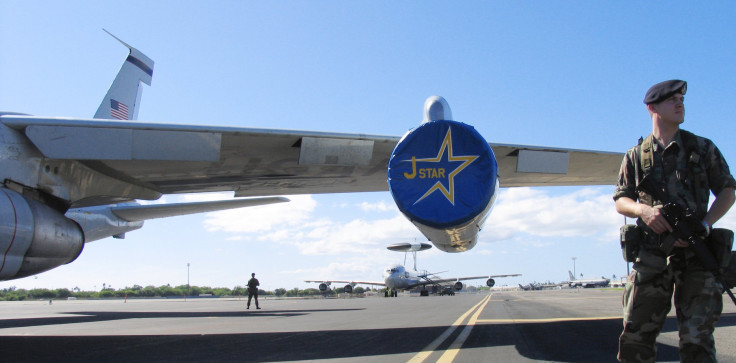US Military Budget 2015: Will Joint Surveillance Target Attack Radar System Program Be Cut?

As Congress marches toward yet another potential budget showdown later this year, a top military official said Tuesday that a major restructuring of the Joint Surveillance Target Attack Radar System (JSTARS) might not take place unless legislators can come up with a long-term budget agreement. Facing sequester, a planned recapitalization of the program's ground fleet may be shelved, the official said.
"There is still a possibility given the budget that [the JSTARS] may not happen,” William LaPlante, assistant secretary of the Air Force for acquisition, said Tuesday. "It’s a budget issue, so it depends on the sequester and where the priorities are in the department. It might not happen at all."
The JSTARS is a jointly-run project between the U.S. Air Force and the U.S. Army that provides surveillance in a variety of ways. It was fully approved in 1996 and received its first planes in 2002. The program has been used in several American combat situations, including the Iraq War.
The Pentagon has recently delayed certain new acquisition programs for the program and has held back on decisions to invest in contracts. A contract worth $31.4 million was awarded to Northrop Grumman in August to replace the aging JSTARS fleet.
President Barack Obama recently threatened to veto a defense funding bill currently under consideration in the Senate, saying that it boosts military spending in an "irresponsible way." If the $612 billion defense authorization is vetoed, military officials say they expect Congress to revisit the bill, cut out the disagreeable portions and hold another vote to avoid severe budget complications.
The Senate voted Tuesday to limit debate on the bill, paving the way for a vote on the bill in the imminent future.
© Copyright IBTimes 2024. All rights reserved.






















